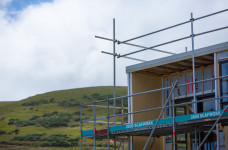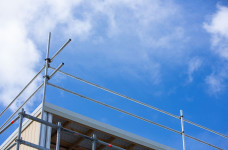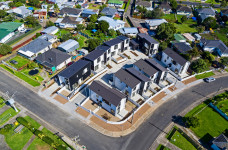Social housing
Last updated: 5 February 2026 On this page you’ll find information about social housing, what we’re doing to increase the supply and how it’s funded.
About social housing
Social housing is a vital part of our social support system, providing families, individuals and whānau with a stable, affordable place to live. Social housing is provided by Kāinga Ora – Homes and Community or community housing providers (CHPs) and may be owned by these providers or leased from third parties. It is targeted at households that are most in need of housing, who can’t access or sustain a tenancy in the private rental market for a range of reasons.
Increasing the supply of social housing
Social housing is a vital part of Aotearoa New Zealand's social support system. The Government is committed to supporting the social housing system, and growing the CHP sector, while investing in a fiscally sustainable way.
See data about social and transitional housing on the Housing Dashboard(external link)
New investment approach for social housing delivery
In 2025, the Government established a new housing investment system, enabled by the Budget 2025 Flexible Fund and guided by a single investment objective to enable people in high housing need to have access to stable and secure housing.
Budget 2025 allocated new funding to deliver a total of 650 to 770 social homes and affordable rentals homes from July 2027 to achieve the investment objective.
The Housing Investment Plan, released in November 2025, outlines how the Government will allocate the funding and key details, including the funding objectives, purchasing intentions, investment locations and preferred delivery modes for each investment location.
The application process for new social homes and affordable rental homes under Budget 2025 will open on 27 February 2026. You can find more detail about the process, assessment criteria and key timeframes in the Application Process Information Document. This document will be available on Government Electric Tender System (GETS) from 5 February 2026.
Budget 2025 Flexible fund opportunity (GETS)(external link)
Access social housing
People can access social housing when they’re assessed by Ministry of Social Development as being in severe need of housing support and are placed on the Housing Register.
The Housing Register shows applicants who are eligible for, but not currently in, social housing who are ready to be matched to a suitable property. The register helps us understand who needs social housing, where the housing is needed and what kind of housing is needed.
See the Housing Register (Ministry of Social Development)(external link)
How social housing is funded
Most social housing tenants pay an income-related rent determined by the Ministry of Social Development, with the amount generally set at 25 per cent of their net income.
We pay an income-related rent subsidy to Kāinga Ora – Homes and Communities and registered community housing providers to cover the balance between the tenant’s rental payment and the rent for the property agreed between HUD and the provider. In some cases, an operating supplement is also paid to enable housing supply.
Further information on the funding model for new funding from 2025/2026 will be provided when applications open on 27 February 2026.
Read more about income-related rent subsidy
Partner with us
We’re committed to working in partnership with CHPs on new housing opportunities.
If you have any questions, please contact us at investment@hud.govt.nz.


